calsfoundation@cals.org
Blakely (Garland County)
The small community of Blakely originated as a logging camp of the Dierks Lumber and Coal Company. Named for Blakely Mountain and Blakely Creek in the Ouachita Mountains, the camp moved twice before reaching its permanent location just west of Highway 7 near Jessieville (Garland County). Blakely remains as a tangible reminder of the Dierks company’s legacy in Garland County.
Dierks Brothers Company was founded in the 1880s by Hans, Herman, Peter, and Henry Dierks, sons of German immigrant Peter Henry Dierks. In 1895, the company became Dierks Lumber and Coal Company, and the company owned and operated numerous lumber yards in Iowa and Nebraska. In 1900, the Dierks brothers made their first purchase in Arkansas, acquiring a mill in De Queen (Sevier County). Dierks Lumber and Coal expanded, particularly in Arkansas and Oklahoma. By 1930, the company operated more than twenty retail lumber yards, built and operated six lumber mills, constructed railroads, acquired at least twelve lumber manufacturing or timber companies, purchased over 1,250,000 acres of land, and implemented some of the first forestry conservation policies in the South. The Dierks family established a lumber dynasty that made the Dierks name a household word in the region throughout the twentieth century.
In 1922, Dierks first purchased land and timber rights in Garland County in the heart of the Ouachita Mountains as a basis for two new sawmills, one in Arkansas and the other in Oklahoma. A logging railroad and mill town arose around each. Arkansas Power and Light (AP&L), which had plans for a dam on the Ouachita River at Blakely Mountain, approximately one mile northwest of Hawes (Garland County), offered Dierks an appealing opportunity: the dam’s entire reservoir area would need to be completely stripped of trees. The company chose a site for its new Arkansas facility near the utility’s proposed dam, thereby providing a mill close to the thousands of acres of pine in the dam’s reservoir area. By the time the new mill at Mountain Pine (Garland County) became fully operational in 1928, Dierks controlled the timber rights or owned thousands of acres in the heart of the proposed reservoir.
Dierks’s new town at Mountain Pine became a typical mill community of that era in the South. The company initially employed about 350 there, with another 125 involved in woods or logging work. Some of those who worked for “The Company” lived in a logging camp called Blakely, first located in Section 28, Township 1 South, Range 21 West, to the northeast of Cedar Glades (Garland County). A post office was established there in 1936 (a short-lived post office had served the area five decades earlier). Dierks quickly exhausted the timber supply in the immediate area, and the dam’s construction seemed imminent, so in 1937 the camp moved to Yell County, as did its post office. Then, in about 1940, Blakely moved again, this time to a site just west of Highway 7 near Jessieville. To locals, it came to be known as “Blakely Camp” or simply, “The Camp.”
At Blakely, a log yard served as a temporary site for logs transported by truck from the woods. Logs were unloaded from trucks and later reloaded onto railcars. A company-owned spur railroad line to Blakely from Mountain Pine brought a daily train that carried the timber to the mill. The arrangement shortened the time loggers spent getting to and from the woods, and also drastically reduced truck mileage. A maintenance shop repaired trucks and other equipment, in addition to maintaining a fuel supply.
Blakely became a smaller version of the mill town at Mountain Pine, with housing facilities owned by Dierks and rented to employees. Homes were arranged in blocks with streets. Several new, larger homes were built about 1960 for supervisory personnel. A company store, often referred to as “the commissary,” provided food and supplies for residents. Electrical service was made available, and water was supplied by Dierks, stored temporarily in the camp’s water tower. A company doctor provided medical services at Mountain Pine and/or Hot Springs (Garland County) for Dierks employees and their families. Workers’ children attended school at Jessieville. A tornado struck Blakely in 1955, demolishing the store and several other buildings, prompting construction of several storm shelters in the area.
The Blakely community has persisted, even after the sale of the entire Dierks holdings to the Weyerhaeuser Company of Tacoma, Washington, in 1969. Weyerhaeuser continued to operate the mill at Mountain Pine and its auxiliary Blakely camp, but almost immediately after the sale, the company offered employees the opportunity to purchase their homes when it sold most of its Blakely assets except the log yard. The commissary/store also came under private ownership. The store and post office eventually closed, with the structure then being used as a church.
For additional information:
Dierks, F. M. “Don,” Jr. The Legacy of Peter Henry Dierks, 1824–1872. Tacoma, WA: Mercury Press, 1972.
Dierks Lumber and Coal Company Records. Riley-Hickingbotham Library Archives and Special Collections. Ouachita Baptist University, Arkadelphia, Arkansas.
Richter, Wendy. “The Birth of a Company Town.” The Record 42 (2001): 1–27.
Sensel, Joni. Traditions Through the Trees: Weyerhaeuser’s First 100 Years. Seattle, WA: Documentary Book Publishers, 1999.
Smith, Kenneth L. Sawmill: The Story of Cutting the Last Great Virgin Forest East of the Rockies. Fayetteville: University of Arkansas Press, 1986.
Wendy Richter
Ouachita Baptist University
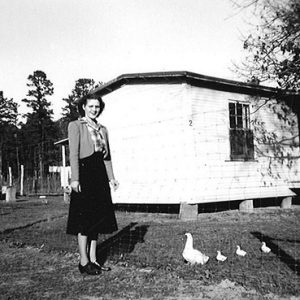
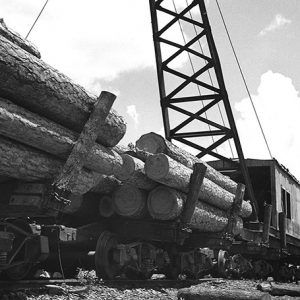
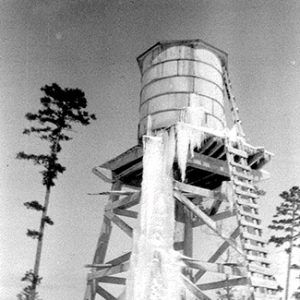
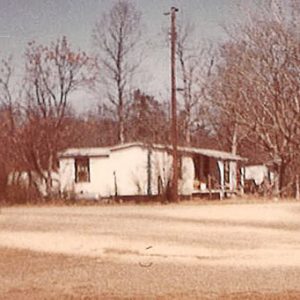
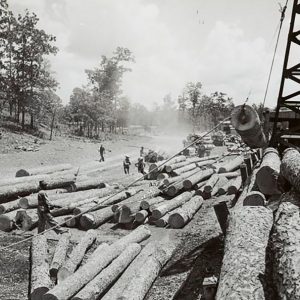
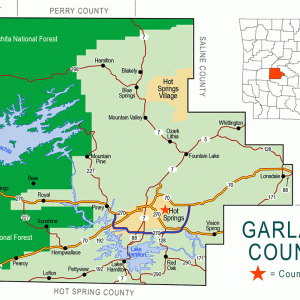




Comments
No comments on this entry yet.